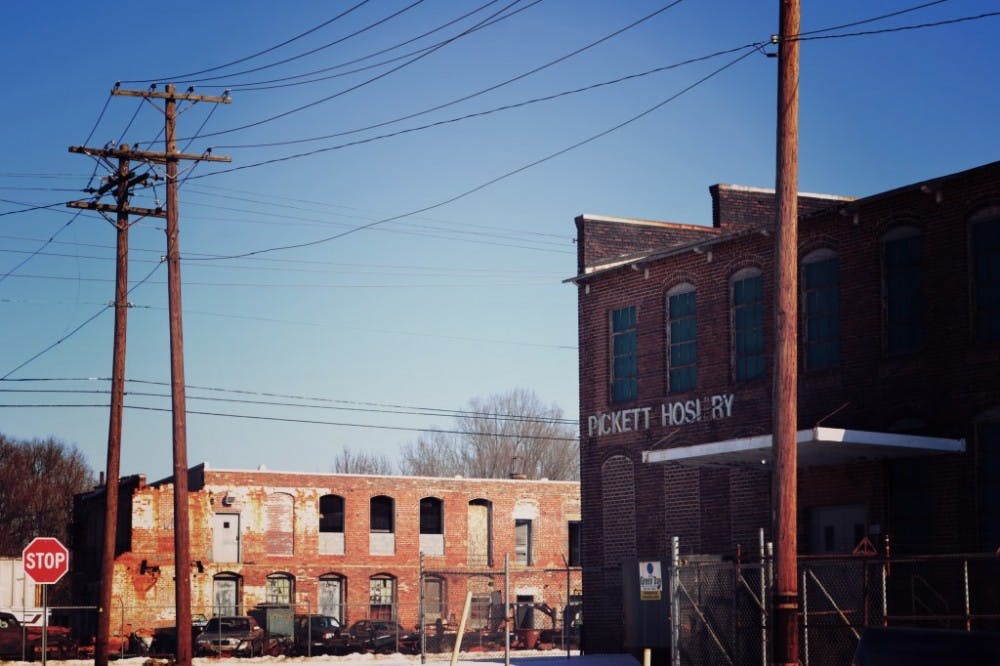The thought of Elon University generally does not bring to mind pictures of poverty, hunger and struggle. Elon students enjoy the campus’ beauty, state-of-the-art resources and less-than-arduous daily life. This is especially the case when compared to the hunger and poverty that lies just miles outside the “Elon Bubble.”
According to the US Census Bureau, the median household income in Burlington from 2008-2012 was $25,285, lower than the US average of $28,051. Approximately 22 percent of Burlington residents live in poverty, which is higher than the United States level of about 15 percent and higher still than North Carolina’s rate, which stands at about 17 percent. According to the Allied Churches of Alamance County (ACAC), 11 percent of citizens in Alamance County were homeless in 2012, and the number persons living in poverty in Alamance County in 2012 amounted to 16 percent of the population.
With issues such as these looming just outside Elon’s campus, it seems daunting to try to take on these problems alone. Elon Volunteers! (EV!) is a service learning and community engagement program that partners with several organizations, giving students the chance to volunteer in the local community as well as abroad.
According to the 2012-2013 Service@Elon Annual Report, 125 students participated in 11 alternative break service trips to locations ranging from eastern North Carolina to New York to Guatemala to southeastern Africa. While these trips provide laudable service to people in need, students need not look farther than neighboring Burlington to find worthy causes to support. EV! partners with local organizations such as Allied Churches, Boys and Girls Club, Burlington Housing Authority, Positive Attitude Youth Center, and Family Abuse Services, just to name a few, giving Elon students the chance to get involved, meet new people, learn more about their community and have fun while doing it.
Of the 66 students who volunteered at the Boys and Girls Club last year, about 26 were coming in for class credit, according to Maddie Hooper, the student Leader in Collaborative Service (LINCS) for the Boys and Girls Club. “Everyone else there was attending the Club for fun. However, some of the students in ASL courses continued coming, even after they had completed their required hours” she said.
If students are willing to give organizations like these a chance, they will open themselves up to enjoy fun and enriching experiences. With services opportunities abound, the attitude on campus lacks a certain sense of urgency.
On the poverty, hunger and struggle that surrounds Elon, sophomore Courtney Vereide said, “We are aware of it, but it’s one thing to be aware and another thing to let it affect us."
“Those who regularly work with EV! typically have a strong knowledge with Burlington’s citizens,” said Brittany Wenner, last year’s LINCS for Family Abuse Services in Burlington. “Many Elon students, however, seem displaced from the Burlington community, and thus unfortunately show a lack of knowledge and understanding of Burlington community members.”
Wenner estimated less than 10 students volunteered with Family Abuse Services on a regular to semi-regular basis last year. She said that working with Family Abuse Services requires specificity, time and expertise, which partially explains their low number of student volunteers. Despite these numbers, Wenner said, “Elon Volunteers is an amazing program and group of people to work with. I would say the nature of the volunteers is half and half in that many students on campus are required to volunteer for credit or have another obligation to fulfill service hours, while the other half display true passion and dedication for volunteer work.”
“Elon Volunteers! is a great program,” said freshman Emily Morris, volunteer for EV!’s Lunch Buddies last semester. “They’re doing a lot.” Still, she’s unsure about Elon’s awareness of the nearby struggle.
The Kernodle Center for Service Learning and Community Engagement is continuously working on this awareness. Evan Small, Assistant Director of Student Programs at the Kernodle Center explained that while most Elon students are aware in some capacity of the socioeconomic difference between Alamance County and the “Elon Bubble,” many do not realize the extent of this difference or that they can play a role in addressing social issues in our surrounding community.
“While we [the Kernodle Center] engage in extensive public efforts, we are always interested in reaching more students,” Small said.
The opportunities are there. All Elon students need to do is take advantage of them. If you’re an Elon student interested in getting involved in the community around you, contact the Kernodle Center.


